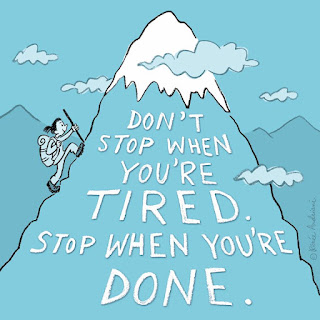Ease of life in modern times
Occasionally I ponder what life was like for my ancestors. For example, when I look down from a mountain at the area where I now live in Utah and try to imagine the view just 160 years ago, it's a dramatically different scene. There are a few dirt roads, a few scattered settlements with homes of adobe or logs, some farm fields and animals. No automobiles, no freeways, no electric lights, no big stores or factories or office buildings. Lots of sage brush.
What a different life it was back then! People worked hard, many hours a day, just to stay alive. Their recreation and leisure time was minimal. There were no "savings accounts" or "retirement funds." There were just families, neighbors, communities. Basic survival.
Even more recently, consider the changes. My father was born in 1919 in a small cabin in the Uinta Basin of eastern Utah, where his parents had homesteaded. As he grew old enough, his pioneer-like life consisted in exhaustingly breaking the hard ground and trying to get crops to survive. He was privileged to have access to education, though he rode a horse several miles to where he could meet a school bus. But he also saw dramatic advances; they got electric power to light their homes, tractors to help in the fields. But still, between work and education and survival, there was not time for much else.
I was born in 1957, and grew up in relative leisure. I had some chores, but most of my time was spent going to school, doing a little homework, reading for leisure, and recreating with friends. I learned to type on a manual typewriter, watched a black & white television, made phone calls from a wall-mounted rotary dial phone.
My children grew up with similar demands on their time as I had. But they had computers for typing and researching; they carried phones with them in their pockets. Sustaining life has gradually become simpler and easier, and the trend is likely to continue.
Consider almost any task, now versus the past. Obtaining food in the past required hours of hunting or gathering, and much agricultural effort. Today we just stop by the grocery store and pick up supplies. How long did it take to gather wood and light a cooking fire, compared to turning on a burner on a stove? We can get in a car and travel in an hour what used to take a week. We can get in a plane and travel in a few hours what used to take months. We can access information so easily and almost instantly, that would have taken many, many hours of research in the past - if it was available at all.
Do we take the conveniences and capabilities of our modern life for granted? I think we surely do. We just increase the level of recreation and entertainment, sometimes in mindless, frivolous ways.
Many years ago, Susa Young Gates, a daughter of Brigham Young, felt overwhelmed by all the work of redemption that needed to be done, and despaired of it ever being accomplished. She asked her father how it could happen, and Brigham told her "there would be many inventions of labor-saving devices, so that our daily duties could be performed in a short time, leaving us more and more time for temple work." She shared that response with a friend, who commented in 1952, "The inventions have come, and are still coming, but many simply divert the time gained to other channels, and not for the purpose intended by the Lord." (Archibald F. Bennett, “Put on Thy Strength, O Zion!” Improvement Era, October 1952, p. 720) That's an interesting thought to ponder.
I #GiveThanks for the blessings of my life of ease in these modern times, and for the invitation to reconsider how I am taking advantage of that gift.





Comments
Post a Comment